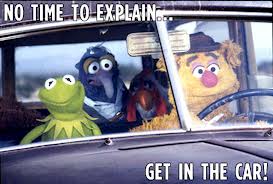WCAB: 1-year Statute Applies to Specific Injury; Knowledge of Industrial Causation Irrelevant
Happy Monday, dear readers!
Are we refreshed? Are we relaxed? ARE WE READY FOR WORKERS’ COMP?!?
I know, I know, dear readers, me neither…
Monday mornings are certainly made bearable with a cup of coffee in hand… but wouldn’t a glass of wine make them more enjoyable? Speaking of wine, I present to you the recent panel decision in the matter of Ostini v. Alma Rosa Winery & Vineyard.
Applicant was a hostess in a wine tasting room and sustained an injury when she drove home from work on April 5, 2008 and was in a car crash. The application was filed on February 6, 2013. That’s right, dear readers, well within five years from the date of injury, but well after 1 year.
Defendant asserted a number of defenses in rebuffing the claim: statute of limitations under Labor Code section 5405, AOE/COE (presumably citing the going and coming rule), and the intoxication defense of Labor Code section 3600(a)(4) (applicant testified that drinking wine at work was “allowed” but we never get to find out if the employer’s acceptance of an employee drinking on the job somehow translates to being liable for injuries sustained while driving home).
The WCJ ruled that the statute of limitations does not bar the claim because the statute runs from when “the applicant attains knowledge that the injury is industrial.” The panel, however, reversed, stating that “knowledge of industrial causation is not relevant to the date of injury for specific injuries.” Tolling could have occurred if applicant had advised her employer of the injury and the employer failed to provide a claim form, but there was no evidence in the record that applicant ever told her employer about the injury.
The WCAB further disagreed with the WCJ’s reasoning that defendant suffered no prejudice as the result of the delay in filing a claim, and thus the statute of limitations could not be raised. “Unlike the doctrine of laches,” the panel opined “there is no requirement of prejudice for a defendant to invoke the statute of limitations.”
This is an interesting point to your humble blogger: first and foremost, defendant certainly did suffer prejudice in a nearly 5-year delay of filing a claim. Defendant has lost all rights of medical control and all benefits of medical observation for the period between the date of injury and the date of filing. Any number of injuries or conditions could have occurred over those five years that would have aggravated or even subsumed applicant’s auto-crash related injuries.
Furthermore, five years is a long time to expect evidence, whether physical evidence or witnesses, to stick around. An employee-witness on the night of the injury might be a disgruntled ex-employee five years later!
The WCAB ruled that the claim was time-barred, reversing the WCJ. Though it took nearly 8 years from the date of injury – a take nothing is a take nothing. I’ll drink to that!
